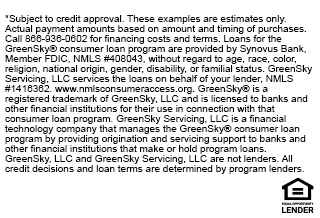Although it can be incredibly infuriating, having clogged drains is a very common problem that most people will experience at some point.
A backed-up sink, toilet, or bathtub can cause unpleasant odors, increase the chances of corrosion, and result in you having to rearrange your entire day. When you’re faced with a clogged drain, it’s wise to contact plumbing professionals, for emergency drain cleaning in Charlotte, NC.
But here’s the good news: There are a number of steps that you can take to prevent clogs, rather than only taking action after the drain has backed up. Conscientious homeowners who focus on maintenance, may be able to avoid or postpone the need for emergency drain cleaning service.
Let’s look at 6 useful tips to prevent clogged drains:
- Keep Track of What is Going Down Your Drains
Drain clogs in sinks and tubs are rarely the result of one single object in a drain or a sudden event. Typically, severe clogs that require professional sewer and drain cleaning are the consequence of the slow buildup of non-liquid material over a long period of time.
Prevention of drain clogs starts by building a basic awareness of what materials are going down your drains when you use them. Drains are intended for the disposal of liquids and are not designed for the discarding of any type of trash.
While most of us know this, we may not always act on this knowledge like we should. Treating a drain as if it were a trash receptacle can cause big plumbing problems over time.
- Pour Hot Water Down your Drain
Some of the most common culprits of drain blockages are food-related substances that can congeal inside your pipes when you pour them down a drain. Kitchen sink clogs are often the result of oils, grease, and other fat-heavy substances that have solidified after disposal.
Ideally, none of these fatty substances would go down your drain at all. However, even with the best practices and care, some fats used in cooking might accidentally wind up in your drain and contribute to possible future clogs.
In order to counter this problem, pour a kettle of hot water down your drain weekly in order to help any solidified oil or grease to break down, maintaining a clear passage in your pipes. Be sure to pour the water down slowly and steadily to ensure that it doesn’t splash back and cause burns.
If you have been in the habit of pouring grease and oils down your drain, changing how you dispose of these substances will save you massive plumbing headaches in the future. Put leftover oils and grease into a sealable container and throw them away in the garbage, rather than sending them into your pipes.
- Clean your Drains Regularly
Basic cleanliness and maintenance are key in preventing drain clogs. As noted above, typical clogs are the result of accumulations of substances in pipes over long periods of time. So, regular maintenance can help to counteract any gradually accumulating blockages.
Cleaning your drains can involve using a wire or bent hanger to retrieve any non-liquid material that is inside your pipes but not too far beyond the drain’s opening. This can include hair, bits of food, or other miscellaneous things that should not have gone down the drain in the first place.
You can also pour half a cup of baking soda or a full cup of vinegar into the drain. After doing so, wait about thirty minutes and follow up with hot water to help eliminate any foul odors that you might be experiencing due to gunk buildup in your pipes.
- Avoid Damaging Drain Cleaners
It might seem intuitive to counter a clogged drain with an off-the-shelf drain cleaner. However, chemical drain cleaners have several downsides that make them much less useful than they seem. For instance:
- Burns and fumes: Because off-the-shelf drain cleaners typically create chemical reactions to clear out clogs, the active ingredients are often volatile and can cause noxious fumes or even burn your skin if you come into contact with them.
- Pollutants and Toxins: Because of the chemical reactions that these cleaners rely on to clean pipes, many of them contain pollutants that have the potential to contaminate the local groundwater if there are cracks or openings in any of the pipes that they travel through.
- Damage to your Pipes: The harshness of many common cleaners can result in new or further damage to your pipes. Whether by softening PVC or increasing corrosion in older pipes, these chemical-based cleaners can result in bigger problems for you in the future.
- Use the Right Kind of Plunger
Another important element of maintenance that works to prevent clogged drains is investing in a high-quality plunger that is designed for your specific needs. Very often, a plunger is the first line of response in the case of a clogged sink, tub, or toilet.
However, many people don’t realize that there are two main types of plungers with specific and distinct purposes:
- Common Cup Plunger: A cup plunger is the standard plunger, consisting of a long firm handle and with a cup on the end for creating pressure to move and break up blockages. The shape of these plungers makes them ideal for flat surfaces like sinks and tubs, but not toilets.
- Flange Plunger: These plungers (also known as “toilet plungers”) have the same features as a common cup plunger, but also feature a flap that protrudes beyond the rim of the cup. This additional flap allows the plunger to create a seal with non-flat surfaces, like a toilet drain.
Make sure that you have a well-made plunger of the appropriate type on hand so that you can clear a clog quickly and effectively.
- Place Drain Strainers in Sinks
One of the quickest and easiest ways to prevent any solid materials from going into your pipes is to place drain strainers in all of your sinks. These simple mesh strainers are often made of stainless steel and are available in various sizes to fit most sink drains.
Cleaning your drain strainers regularly is an important part of drain maintenance, as well. However, when properly maintained, these small accessories are one of the most cost-effective ways to ensure that no solid materials are unintentionally finding their way into your drains.
Professional Charlotte Drain Cleaning Services
If you are in search of professional drain cleaning in Charlotte, contact the experts at Superior Plumbing & Drains, LLC. Our drain service technicians have helped thousands of people in the Charlotte area. We are available 24/7, so contact us online or call us at (704) 289-6858 if you live in the Monroe/Charlotte area or (704) 813-2888 if you live in the Gaston area for qualified drain cleaning in Charlotte, NC.









